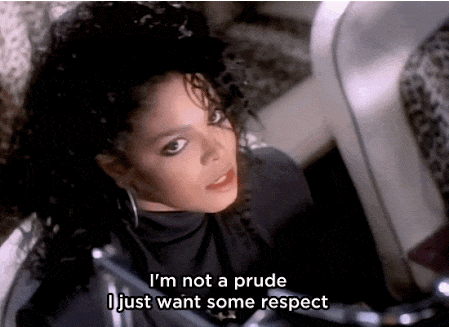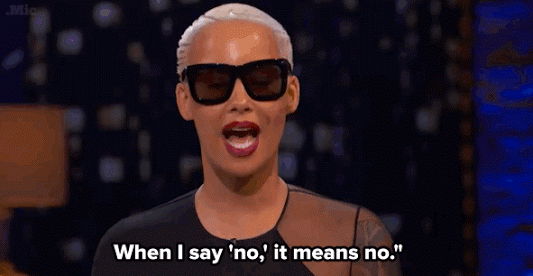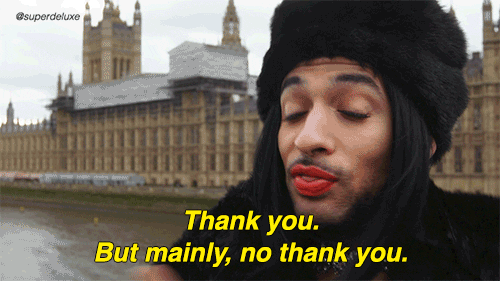The most common question I get when I tell people about my work on Consent in the Creative Industries?
“Does this mean I can’t just hug someone without having to ask?”
No sooner is the question out of their mouths that they realise what the answer is, and try to justify themselves: “I’m a really tactile person”, “I think we should all be free of boundaries”, “I don’t have bad intentions”. Sure, but tell me which of those statements respects the other person’s right to choose?
It is the one thing I am questioned the most about, and also the one thing I am thanked the most for. People who are introverts, people who are trauma survivors, people who live with synesthesia, people who live with non-visible disabilities impacted by touch, people who are just having a bad day, people who have somewhere else to be – tell me that being asked for a hug, saying no, and being met with a smile and an ‘all good’ has mattered to them and how they go about their days.

Whenever I do a workshop or a talk with a creative team, I find the most powerful point is when I talk about hugging. It’s always an awkward topic to start with, because as people we don’t want to overthink about the politics of touching each other. Especially in the creative world, where we’re encouraged not to have any physical boundaries or prudence in our approach. It’s uncomfortable. But then I make the following point, and I see people’s minds change:
When someone says “no”, try to understand that what they’re effectively saying is, “I trust you”. When someone says “no”, they’re declaring a boundary, and communicating that they have faith and hope that you won’t cross it. When someone says ‘no’ after you ask them to consent to something, they are offering you a powerful opportunity to establish mutuality and openness, to grow a stronger relationship.
For some people, setting boundaries can be incredibly scary and vulnerable. Which is why the more someone’s “no” is ignored, disregarded, violated? The more urgent, insistent and aggressive their “no” can become. Which is why when that ‘no’ is respected, without any questions asked, it can be incredibly powerful, even overwhelming.
We don’t like to be told “no”. We don’t like to feel rejected, or diminished, or prevented from having what we want. Any performer who has done improvisation will know that the number one rule is that no matter what, you say “yes” – to any idea, any suggestion, any impulse. It’s a difficult habit to break, and often one we won’t question until something traumatises or terrorises us so that we become afraid to say “no”. Until we come to feel as though ‘no’ is not available to us.
Our feelings of rejection are our own responsibility, and they are far less important than another person feeling safe, heard and respected. So before hugging someone, especially someone you haven’t hugged before, prove that you can navigate a boundary, and that however that boundary is set – with ‘yes’, ‘no’, ‘sure’, ‘not yet’, ‘only on my left side please’ – that you’re willing and trustworthy.

Sure there are exceptions to the ‘no is a gift’ concept. Someone asking someone else to do something together, and they say ‘no’ is one thing; someone asking something to stop doing something that is making them unsafe, or putting other people at risk, and they say ‘no’ is quite another. Broadly, our relationship with ‘no’ needs to change: that we stop seeing ‘no’ as negative, and start seeing it as productive.
I’m also not saying that it has to be every time that you ask (although, why not? People’s boundaries can change quick as lightning). I’m also not saying that asking needs to be verbal every time. You build the relationship where the consent in glances, and body languages, and asking, and checking in. And if you’re worried about saying ‘no’ and potentially making someone feel uncomfortable remember there are many ways of saying ‘no’. ‘Nah’, ‘not right now’, ‘I’m alright, thanks’, ‘sorry I’m not feeling it’, ‘I love you but nope’ are all things we should be comfortable saying and hearing.
I recently was part of a project where there was a great deal of ‘yes’ in decisions, where more questions should have been asked; more ‘no’ could have improved the rate of success and teammate-ship. In these working conversations it doesn’t have to be ‘no’ either: it can be ‘yes, but like this’, or ‘not for me’, or ‘there’s a different way I think that can work’, or ‘how about we try…’. One of the big reasons we avoid diversity in leadership is because we want the speed that ‘yes’ can provide, more than we want the quality that ‘no’ can promote.
‘No’ is the key to compromise. ‘No’ is the cry of self-empowerment. ‘No’ is a verbal leap of faith.





